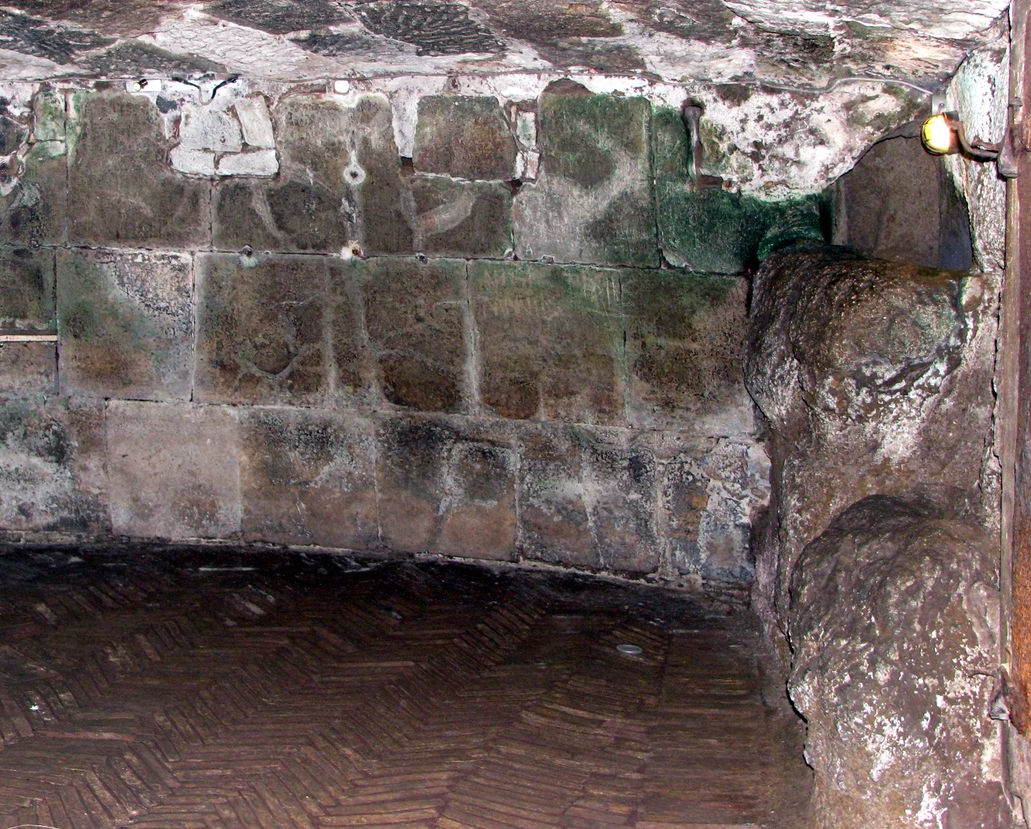8 And unto the angel of the church in Smyrna write; These things says the first and the last, who was dead, and is alive;
9 I know your works, and tribulation, and poverty, (but you are rich) and I know the blasphemy of them who say they are Jews, and are not, but are the synagogue of Satan.
10 Fear none of those things which you shall suffer: behold, the devil shall cast some of you into prison, that you may be tried; and you shall have tribulation ten days: be faithful unto death, and I will give you a crown of life.
11 He that has an ear, let him hear what the Spirit says unto the churches; He that overcomes shall not be hurt of the second death.
Drawing Connections
In our last study, we explored how the church in Ephesus, despite its many good qualities, was dangerously drifting toward lovelessness. Without love, the church loses its essence, becoming a place of empty laws, rituals, and meaningless talk. True Christianity cannot exist without love; when love is absent, self-centeredness takes over, and the church ceases to function as the body of Christ. The next church we will examine, Smyrna, presents a different set of challenges that many of us can relate to—pain and suffering.
Today, we begin our study of the second church. As we did with the church in Ephesus, we will divide this study on Smyrna into two parts. Part 1 will explore the historical and biblical context of the city, including its culture and the local church. In Part 2, we will analyze the structure of the letter to Smyrna, breaking down every detail and examining how this church prophetically fits into Church History.
Part 1 Part 2
PART 1
Closer Look
*** Historical setting ***: Smyrna was a very beautiful and rich city, about 35 miles from Ephesus. Today it is known as Izmir, Turkey. The first settlements of that region date back to 3000 BC, and throughout ancient times, Smyrna was a highly influential city-state of Ionia. Homer, the ancient Greek author of the Iliad and Odyssey, was one of its most famous residents. Smyrna was destroyed around 600 BC by King Alyattes. Alexander the Great envisioned the restoration of the city around 340 BC, and King Lysimachus carried the restoration to completion. The city was famous for its “Crown of Smyrna”, which referred to the hill Pagus. The top of the hill was the acropolis, and around that hill there were many pagan temples, rich homes, and prominent buildings. All those buildings around it gave the hill the appearance of a crown. Smyrna had a port, an acropolis, a gymnasium, a large theater, and at some point held an Olympic Festival. The restored city had large paved roads, and rectangular city blocks. The population is calculated to be up to 200,000 by the time John was writing to the churches. Smyrna competed with Ephesus and Pergamum for the title “First of Asia”, which was inscribed on their coins.
The name Smyrna has its origins on the word myrrh, which is the resin, or essential oil, of a Commiphora tree. This resin is a waxy natural gum extracted by making several cuts in the tree's bark, all the way to the sapwood. The tree then “bleeds” the resin. This resin hardens, and by grinding it, it is made into a powder. Myrrh is a very fragrant substance, and can be used to make perfume and medicine, and more importantly, a mixture for preparing the body for burial. Myrrh was the main export of Smyrna in ancient times.
Smyrna developed a very close relationship with Rome, and was the first to build a temple for the goddess Dea Roma, in honor of Rome, in 195 BC. In 23 BC, Smyrna won the right to build a temple of the Emperor Nero. Another Smyrnean goddess was Cybele. Her statue shows her sitting on a throne, with her feet on the sea, and a crown on her head. Her image was one of the most common pictures on some of the Smyrnean coins.
Emperor worship was something that was wide-spread throughout Asia, starting with Julius Cesar, including Caligula, and all the way to Domitian (time of the Revelation letters), who titled himself “lord and god”. Every year, Roman citizens had to participate in some pagan rituals in order to receive a certificate that stated their allegiance and worship to the Emperor. The issue Rome had was not with worshiping the true God. Romans were a polytheist society. One more God would not make that much difference. The issue was with a person refusing to acknowledge the emperor as god. This refusal was considered an insult to the Empire, and resulted in punishment. Usually those people were placed in the arena with some wild beasts for entertainment of the masses, or were burned to death. Judaism was an officially recognized religion. That's why the Jewish people were exempt from such oaths of allegiance. The Romans knew the Jews lived in conformity with Roman rules, and were not disturbing the Roman order. Christianity, on the other hand, was not an acceptable religion in the first three centuries, and so the Christians at that time suffered severe persecution by both pagans and Jews.
*** Biblical view ***: The church in Smyrna is only mentioned in the book of Revelation, and receives the shortest of the seven messages. Much of what is known today about the people in the church there, comes from writings of early Christians, such as Polycarp and Irenaeus. Polycarp (AD 69 – 155), was the bishop of Smyrna. It is believed that he was ordained and trained directly by John himself. History says that Polycarp was one of the first martyrs. According to tradition, he was tied to a pole at the age of 86, to be burned. But he was stabbed instead since the flames never really touched him. Either way, burned or stabbed, he died because he would not blaspheme the name of Jesus.
The persecution of Christians by the Jews is mentioned in the Bible. It started on the day of Stephen’s stoning. Acts 8:1 says: "On that day a great persecution broke out against the church in Jerusalem, and all except the apostles were scattered throughout Judea and Samaria." Stephen was the first martyr, at a pivotal moment in the history of the Christian church. Saul, who later converted and became the apostle Paul, was there at Stephen’s stoning (Acts 7:58). Saul was one of the fiercest persecutors of Christians, and was destroying the church by dragging people out of their homes and putting them in prison (Acts 8:3). Interestingly enough, it was this persecution, which started with the stoning of Stephen, that helped the spread of the gospel throughout the world very quickly. A great number of Jews and Greeks became believers this way (Acts 11:19-21).
Throughout the New Testament, the theme of persecution is frequently mentioned in Paul’s letters. He suffered persecution himself, so he knew that he would not be the only one to go through hard times. He said: "In fact, everyone who wants to live a godly life in Christ Jesus will be persecuted, while evildoers and impostors will go from bad to worse, deceiving and being deceived.” (2 Timothy 3:12-13).
Mamertine Prison

Attribution: Chris 73, CC BY-SA 3.0, via Wikimedia Commons - original here.
Jesus ended the Beatitudes with this saying: "Blessed are those who are persecuted because of righteousness, for theirs is the kingdom of heaven. Blessed are you when people insult you, persecute you and falsely say all kinds of evil against you because of me. Rejoice and be glad, because great is your reward in heaven, for in the same way they persecuted the prophets who were before you." (Matthew 5:10-12). What Jesus says in this passage reminds us of what He is saying to the church in Smyrna. He is saying that suffering persecution for His name is not only a blessing, but also a reason to "rejoice and be glad". This attitude that Jesus calls the believers to have is the exact opposite of fear. The reason we are able not to fear is not something that comes from ourselves. In our own nature, we will experience fear. But when we are deeply connected to God, like the "prophets were before [us]", we receive a supernatural ability to endure anything: "I can do all things through Christ who strengthens me" (Philippians 4:13).
Overview
The church in Smyrna lived in a contrasting reality. The church was located in a free city, yet it was persecuted. The city was rich, and yet the church was extremely poor. Their society was lacking respect for the true God, and yet the church was spiritually rich. This contradictory situation does not end there. The church received a letter from Jesus saying there would soon come harsh persecution, and yet He is saying "do not be afraid". Jesus is saying to the overcomer: you may die in your trials, but you will be crowned with eternal life. The key to understanding this apparently conflicting situation, embracing it, and overcoming it is stated in verse 10: "be faithful unto death". In the words of Jesus Himself: "[...] Whoever wants to be my disciple must deny themselves and take up their cross and follow me. For whoever wants to save their life will lose it, but whoever loses their life for me will find it. What good will it be for someone to gain the whole world, yet forfeit their soul? [...]" (Matthew 16:24-26).
